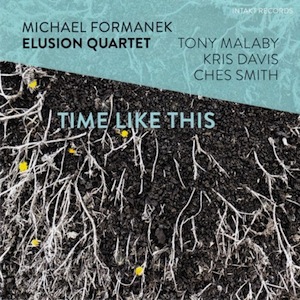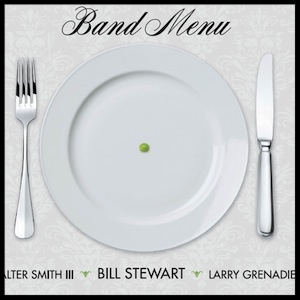Label: Artists Recording Collective, 2018
Personnel: Dan Arcamone: guitar; Tony Grey: bass; Steve Pruitt: drums.
Hailing from Norwalk, Connecticut, guitarist Dan Arcamone leads a new trio, with bassist Tony Grey and drummer Steve Pruitt, into an electric fusion foray. On the new album, X, he sets his mind into a combination of powerhouse rock, improvised jazz, and virtuosic folk ideas, sometimes evoking the work of exceptional guitarists such as Mick Goodrick, Ralph Towner, John Abercrombie, and Pat Metheny.
“Nediam” starts out with thick round bass lines, rattle-instilled drumming, and an expeditious guitar work agglomerating scales, patterns, and nimble rhythmic figures. “Slings” maintain this predisposition, combining alternative rock and folk jazz elements in well discernible passages that sometimes slide into funk.
Rays of light penetrate the sonic grey cloud hovering above “Gamma”, a compound of styles marked by a lively rhythm. Pruitt drives a few tunes with a powerful beat, forming a potent understructure with Grey to better serve the bandleader’s improvisatory zest. The better examples are “Loop”, whose easygoing guitar ostinato soon evolves into a restless improv, and “Luster”, which ends in an invigorating rock excursion.
The thing with this album is that the natures of the songs are practically equivalent, which narrows variety, while the soloing relies on unvarying mercurial procedures that often limit the space to breathe. “Phases” is an exception since it was given a wonderful harmonic treatment, encouraging group dynamics and stirring further emotion.
Although outlined with simple melodic ideas, “Luge” and “Lag” exhibit plucky rhythms, persisting in constant stretches where the tense and the lyrical meet.
Enclosing crafted compositions in its alignment, the cerebral X will certainly attract followers of guitar-driven fusion.
Grade B-
Favorite Tracks:
02 - Slings ► 06 - Phases ► 10 - Lag








































